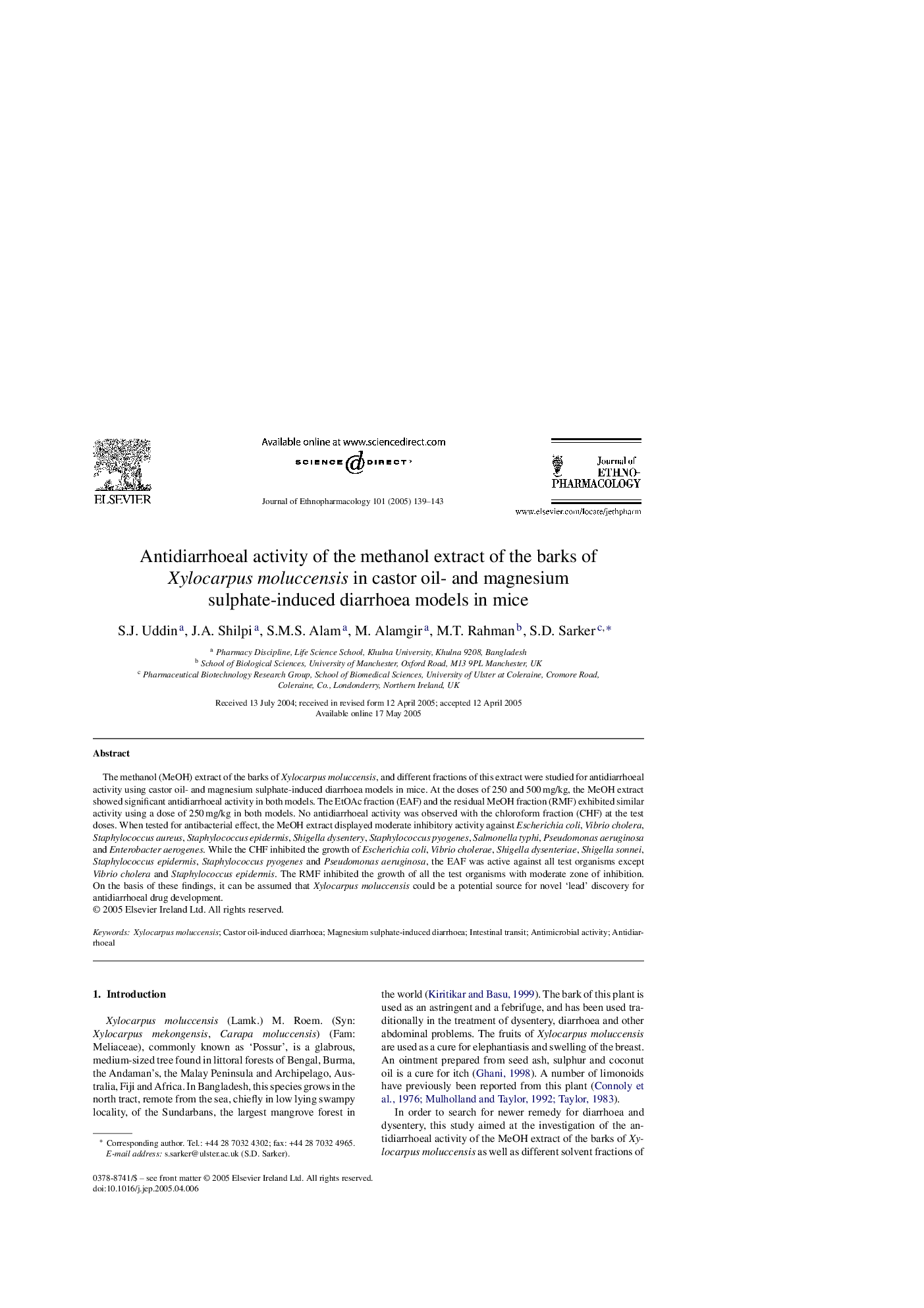| Article ID | Journal | Published Year | Pages | File Type |
|---|---|---|---|---|
| 9011194 | Journal of Ethnopharmacology | 2005 | 5 Pages |
Abstract
The methanol (MeOH) extract of the barks of Xylocarpus moluccensis, and different fractions of this extract were studied for antidiarrhoeal activity using castor oil- and magnesium sulphate-induced diarrhoea models in mice. At the doses of 250 and 500Â mg/kg, the MeOH extract showed significant antidiarrhoeal activity in both models. The EtOAc fraction (EAF) and the residual MeOH fraction (RMF) exhibited similar activity using a dose of 250Â mg/kg in both models. No antidiarrhoeal activity was observed with the chloroform fraction (CHF) at the test doses. When tested for antibacterial effect, the MeOH extract displayed moderate inhibitory activity against Escherichia coli, Vibrio cholera, Staphylococcus aureus, Staphylococcus epidermis, Shigella dysentery, Staphylococcus pyogenes, Salmonella typhi, Pseudomonas aeruginosa and Enterobacter aerogenes. While the CHF inhibited the growth of Escherichia coli, Vibrio cholerae, Shigella dysenteriae, Shigella sonnei, Staphylococcus epidermis, Staphylococcus pyogenes and Pseudomonas aeruginosa, the EAF was active against all test organisms except Vibrio cholera and Staphylococcus epidermis. The RMF inhibited the growth of all the test organisms with moderate zone of inhibition. On the basis of these findings, it can be assumed that Xylocarpus moluccensis could be a potential source for novel 'lead' discovery for antidiarrhoeal drug development.
Related Topics
Health Sciences
Pharmacology, Toxicology and Pharmaceutical Science
Pharmacology
Authors
S.J. Uddin, J.A. Shilpi, S.M.S. Alam, M. Alamgir, M.T. Rahman, S.D. Sarker,
